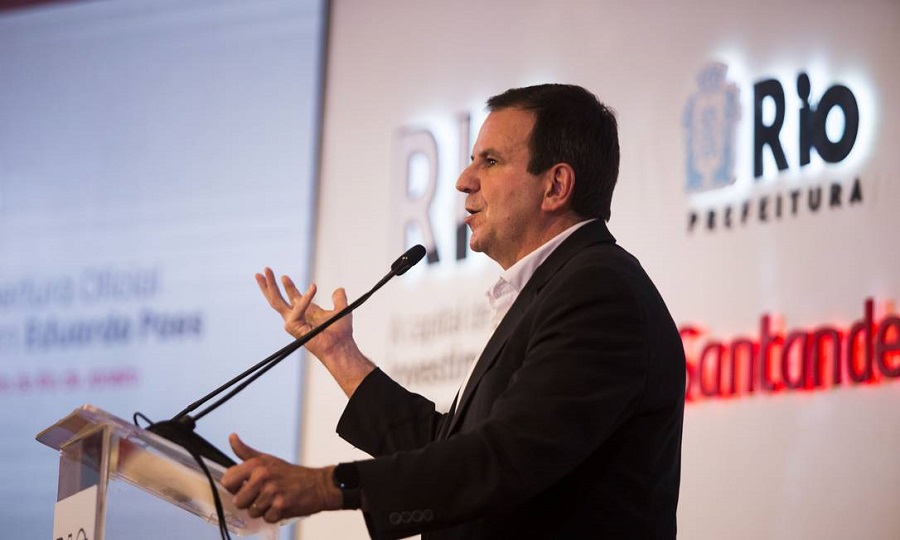RIO DE JANEIRO, BRAZIL – The city of Rio de Janeiro intends to become Brazil’s green economy capital. To this end, the City Hall intends to offer tax incentives to companies that have carbon neutralization projects, which can reach 100% of the ISS (Service Tax).
The news was announced at the event “Rio, the capital of green investments in Brazil,” held on Friday at the Museu do Amanhã (Museum of Tomorrow).

Organized in partnership with Santander, the Roberto Marinho Foundation and Rio City Hall, the event addressed the city’s commitment to environmental issues.
Opening the event, Roberto Marinho Foundation chairman José Roberto Marinho highlighted that the city has been the green capital of the country since Rio 92, and said that to think about tomorrow is crucial.
“We (at the Museu do Amanhã) tried to do what human beings don’t usually do, which is discuss tomorrow. And the result is there, climate change,” the executive said. “We are in favor of science, studies, evidence. And Rio has it all to become the green capital.
Rio de Janeiro mayor Eduardo Paes emphasized that environmental assets are economically valuable to the city, and that Rio has been trying to regain its spaces and identify its potential.
“We will do everything we can for Rio to become Brazil’s green investment capital, even if Zé Roberto and I have to build a museum like this one to be the green exchange,” the mayor said.
TAX INCENTIVES
Rio Secretary of Finance and Planning Pedro Paulo announced that a tax incentive program for the decarbonization market has been prepared by the City Hall. The so-called ISS Neutro will work on two fronts. The first is a reduction from 5% to 2% of the municipal tax for consultancies, certifiers, and technology companies focused on this market.
The second is a reduction that may reach 100% of ISS for companies in any sector and of any size that have projects to reduce carbon emissions.
The goal is to finalize the program and present it to the City Council in the first half of 2022.
“In June we created a working group to champion Rio as a hub for this market, creating an ecosystem for companies to come,” Pedro Paulo said.
Former Finance Minister Arminio Fraga, who participated in the panel with the secretary, said he is in favor of tax benefits for this market.
“The tax reform can and should incorporate environmental goals. A driver is needed, and a regional development project demands a strategy with incentives. I think this makes perfect sense.”
Pedro Paulo also stated that the city of Rio will have its own carbon certification, called Rio Standard, which will have its methodology developed together with the CVM (Securities and Exchange Commission) and with reference certifiers in the market.
The secretary also announced that he is discussing with CVM, ANBIMA and universities in Rio de Janeiro a project for the city to become a “great talent trainer” in this area.
“We want Rio to be a breeding ground for green finance professionals,” he said.
According to Arminio Fraga, led by Rio, Brazil must invest efforts in the green economy.
“Our position in the world is very fragile and this represents an opportunity for us to produce a kind of alchemy. To convert an almost international pariah position into a leader situation.”
The first auction of carbon credits in the city of Rio is scheduled for the first half of 2022, to take place on the AirCarbon platform, a newcomer to the city. Founded in Singapore, the global platform works as a kind of green stock exchange of the voluntary market.
The auction will consist of 1,800 tons of carbon credits from an urban mobility company.
“This is the first step in the development of this ecosystem in Rio de Janeiro. We are creating the means for a safe business environment in the city,” explained Economic Development Secretary Chicão Bulhões.
He also pointed out that the city plans to create a carbon neutral district in downtown Rio by 2024. “We want to be more than a tourist city. We want to be the great pole of financing and transactions related to the green credit potential we have in the city,” he said.
AirCarbon Brasil director Carlos Martins said that establishing an exchange in Rio will allow Brazilian assets to be priced with global visibility. Today, carbon credits are only traded over the counter at B3, he said.
“The emission reduction project currently has no visibility of price curve in the future, and the creation of a marketplace enables this. And with derivatives, banks will be able to use this type of contract as collateral,” he says.

